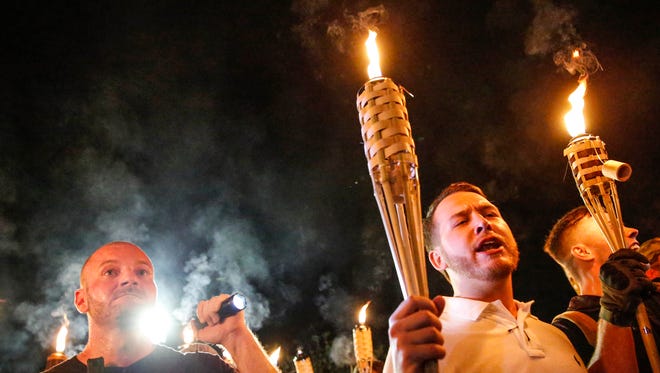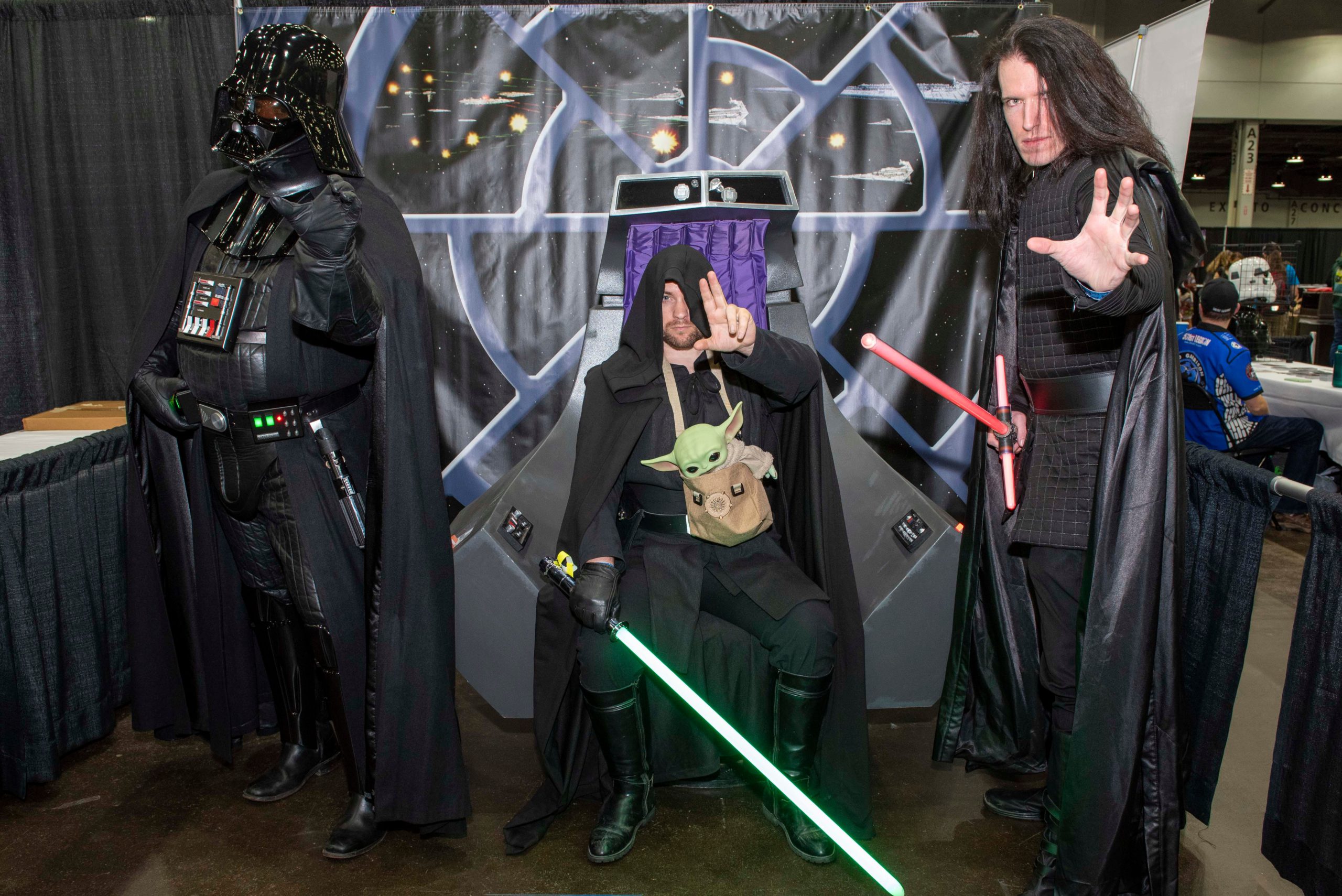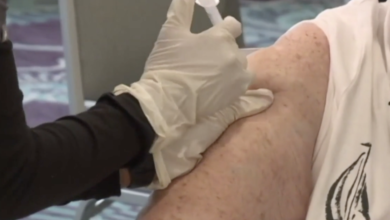
One defendant compared himself to Jesus. Another ranted and showed videos of protesters chanting, “White lives matter.” A lawyer played a five-minute neo-Nazi propaganda video in his closing argument.
It was a wild final day in the courtroom of U.S. District Judge Norman Moon, who is overseeing a landmark civil trial over the deadly Unite The Right rally in Charlottesville, Virginia. The lawsuit seeks millions in damages for nine plaintiffs injured during the rally. Attorneys for the plaintiffs say their goal is to financially cripple the defendants, a who’s who of the American racist right, and ensure nothing like Charlottesville ever happens again.
That weekend in August 2017, clean-cut white men marched with lit tiki torches chanting, "Jews will not replace us." Fights broke out between white supremacists and counter-protesters. Neo-Nazi James Fields drove his car into a crowd, killing Heather Heyer. Fields was convicted of murder and sentenced to life in prison.
The lawsuit claims the defendants, two dozen prominent white supremacist leaders and neo-Nazi organizations, engaged in a conspiracy to commit racially motivated violence against nonwhite and Jewish people in Charlottesville. For the last month, plaintiff’s attorneys have presented evidence, including hundreds of thousands of leaked, secret communications from the messaging platform Discord and text messages between the rally organizers, to show the violence that weekendwas premeditated, deliberate and celebrated.
Financially crippling white supremacists:Lawsuit over Charlottesville 'Unite the Right' rally has crippled white supremacist groups, leaders
Defendants blame police for violence:Defendants in Charlottesville civil trial blame police for violence at 2017 'Unite the Right' rally
Amy Spitalnick, executive director of Integrity First for America, a nonprofit civil rights organization that is backing the lawsuit, said the trial has proceeded exactly as she hoped.
“Our plaintiffs have provided overwhelming evidence that Unite the Right was never intended to be a peaceful protest – rather, it was a meticulously planned weekend of racist, antisemitic violence,” Spitalnick said. “We’re incredibly proud to support these courageous plaintiffs as they seek much-needed accountability and justice.”

A patchwork of defenses
The white supremacists have offered a patchwork of defenses.
Some have argued that they weren’t involved with the planning of the rally at all. Others have claimed they met one another for the first time in Charlottesville. Defendants Richard Spencer, former leader of the "alt-right," the white supremacist and nationalist movement, and Christopher Cantwell, a neo-Nazi podcaster who is serving a prison sentence for extortion, have tried to cast the trial as a referendum on free speech in America.
Moon quickly shut down those grandiose arguments Thursday. He chastised the defendants, telling them to stick to the facts of the case and not to go off on tangents about the possible impacts of the trial.
But Moon has had trouble stopping the defendants from turning the trial into a showcase for their hateful beliefs and their personal brands. Cantwell, who is perhaps most famous for weeping uncontrollably in YouTube videos, has sought to portray himself as a martyr for the First Amendment. Spencer has made lofty speeches while dropping hints that he sees himself a reasonable adult in a room full of hate-filled children.
Defendants have openly used the N-word in court, made racist and antisemitic jokes and spoken at length about their admiration of Adolf Hitler.

Neo-Nazi propaganda video played in court
The showboating hit an extraordinary nadir Thursday afternoon when Joshua Smith, an attorney for the now-defunct white supremacist organization the Traditionalist Workers Party, played a white supremacist recruitment video at the end of his closing statement.
The clip was neo-Nazi propaganda, filled with debunked, hateful conspiracy theories about Jews and people of color. But everyone in the courtroom and hundreds of people listening via a conference call had to sit through it, eliciting shocked reactions on social media from journalists and others following the case.
The video came a few hours after the judge cut Spencer off when he compared himself to Jesus.
“What got him executed? What made him the object of hatred?” Spencer said of Jesus. Moon interjected, saying, “I don’t know where you’re going with this.”
“You can’t cut me off,” Spencer pleaded.
“When you get out of line, I have to,” Moon responded.
Plantiff's lawyer: A conspiracy to crack skulls
Rebutting the defendants at the end of the day, Karen Dunn, co-lead counsel for the plaintiffs with Roberta Kaplan, offered a simple and sober assessment. She told the jury that conspiracy is a legal construct, one with a clear definition and parameters.
Co-conspirators need not have conspired only to commit illegal acts, Dunn said. The rally was permitted and legal, she said, but the defendants’ communications showed they were planning on more than just raising their voices.
Addressing each defense in turn, Dunn noted that attendees need not have known one another beforehand in order to be engaged in a conspiracy. She said it’s not legally necessary for the conspirators to have foreseen that a specific illegal act would happen.
Nonetheless, in the Charlottesville case, the defendants knew exactly what the outcome of their rally would be and planned itas such, Dunn said.
“This was not about a little fistfight, a little scuffle,” Dunn said. “This was about raising an army for the cracking of skulls.”
The plaintiffs – a minister, students and other Charlottesville residents – have won default judgments against seven of the 24 defendants, with the penalties to be decided by the jury. The court has issued five-figure fines against three other defendants for failing to produce evidence or show up for court hearings or depositions, court files show.
The jury will convene Friday morning to begin deliberations.








